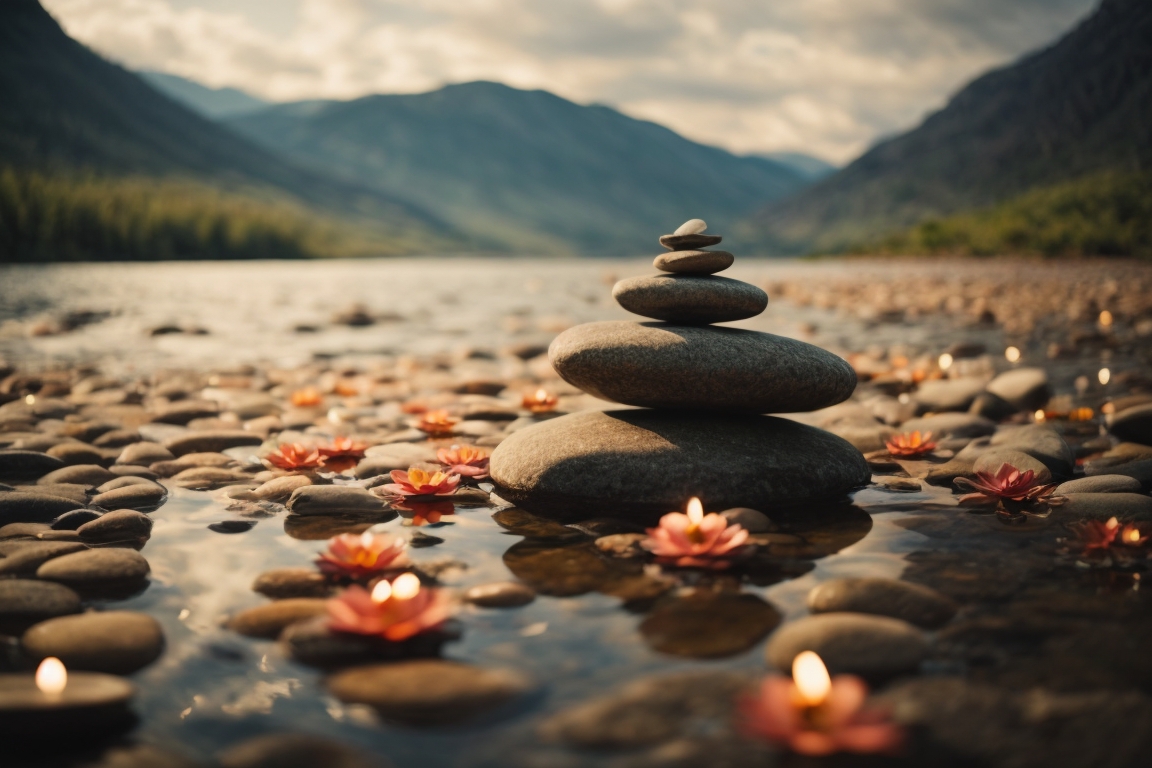Mindfulness and Meditation: Techniques for Finding Inner Peace

In today’s fast-paced and chaotic world, finding inner peace has become a crucial endeavor for many individuals seeking to balance their minds and bodies. The quest for tranquility and harmony has led people to explore various practices, with mindfulness and meditation emerging as powerful tools for achieving a sense of inner peace. In this extensive blog post, we will delve into the profound benefits of mindfulness and meditation, their distinct techniques, and how they can help you navigate the challenges of modern life while cultivating a deeper connection with yourself and the world around you.
- What is mindfulness, and how does it differ from meditation?
Mindfulness is the practice of being fully present and aware of the current moment without judgment. It involves observing thoughts, emotions, and sensations as they arise, fostering an attitude of non-reactivity. The essence of mindfulness lies in accepting things as they are, without trying to change or judge them. On the other hand, meditation is a broader term that encompasses various techniques aimed at training the mind to achieve mental clarity and emotional balance. While mindfulness is a fundamental component of meditation, meditation includes additional practices like concentration, loving-kindness, and transcendental meditation, each with its unique focus and benefits.
- How can mindfulness help me find inner peace in a chaotic world?
In the midst of the hustle and bustle of modern life, cultivating mindfulness can be transformative for attaining inner peace. Mindfulness allows you to stay grounded in the present moment, breaking free from the anxiety of the future or regrets of the past. By learning to observe your thoughts and emotions without attachment, you can cultivate a calmer and more peaceful state of mind. Practicing mindfulness regularly helps reduce stress, improve focus, and create a deeper connection with yourself and the world around you. As you tune in to the present moment, you develop a heightened awareness of your thoughts and feelings, allowing you to respond to life’s challenges with greater clarity and composure.
- What are some practical techniques for practicing mindfulness?
Mindfulness can be integrated into various aspects of your life, offering you a rich tapestry of techniques to explore. Here are some practical mindfulness techniques you can try:
a) Breath Awareness: Focusing on your breath as it moves in and out helps anchor you to the present moment. Simply observe each breath without trying to change its rhythm, allowing yourself to feel a sense of tranquility and centeredness.
b) Body Scan: This technique involves systematically bringing attention to different parts of your body, noticing any sensations or tensions present. By gently scanning your body from head to toe, you promote relaxation and release accumulated stress, fostering a sense of calm.
c) Mindful Walking: Taking a break from your daily routines, engage in mindful walking. Be fully present with each step you take, appreciating the beauty of the natural world around you. Connect with the earth beneath your feet and find peace in the simplicity of this act.
d) Eating Mindfully: Practicing mindful eating involves savoring every bite of food, noticing flavors, textures, and the nourishment it provides. By appreciating the process of eating, you can develop a healthier relationship with food and cultivate a peaceful connection with your body.
- What are the benefits of meditation, and which type should I choose?
Meditation offers a wide range of benefits for your mental, emotional, and physical well-being. The type of meditation you choose depends on your personal preferences and goals. Here are some common types of meditation and their benefits:
a) Concentration Meditation (Samatha): Ideal for improving focus and calming the mind through single-pointed concentration, such as focusing on the breath or a mantra. By training the mind to stay focused on a specific object, you enhance your ability to concentrate in other aspects of life.
b) Loving-Kindness Meditation (Metta): This type of meditation is recommended for cultivating feelings of love, compassion, and kindness towards yourself and others. By directing positive intentions and well-wishes, you create an environment of harmony and inner peace, fostering deeper connections with others and yourself.
c) Mindfulness Meditation (Vipassana): This form of meditation is helpful for developing self-awareness and acceptance, leading to a deeper understanding of the impermanent nature of reality. By observing thoughts and emotions without attachment or aversion, you cultivate a sense of inner equanimity and wisdom.
d) Transcendental Meditation (TM): Transcendental Meditation involves the repetition of a specific mantra, allowing the mind to transcend ordinary thoughts and reach a state of deep relaxation and inner silence. By diving into the depths of consciousness, you access profound inner peace and rejuvenation.
- Can mindfulness and meditation really improve my physical health?
Yes, scientific research has shown that mindfulness and meditation have a positive impact on physical health. These practices have been associated with reduced blood pressure, improved sleep quality, and a strengthened immune system. By reducing stress and promoting relaxation, mindfulness and meditation contribute to overall well-being. As stress levels decrease, so does the risk of stress-related health issues, paving the way for improved physical health and vitality.
Conclusion:
Incorporating mindfulness and meditation into your daily life can set you on a transformative journey towards finding inner peace. Mindfulness empowers you to stay present and connected with yourself and the world, while meditation offers a diverse set of techniques to cultivate mental clarity, emotional balance, and overall well-being. Embrace these practices with an open mind and a willingness to explore, and you will discover the incredible potential they hold to bring tranquility and harmony to your life amidst the chaos of the modern world. By nurturing the seeds of mindfulness and meditation within yourself, you open the door to lasting inner peace, radiant joy, and a profound connection with the world around you. Allow yourself to embark on this beautiful journey of self-discovery, and may it lead you to the boundless wellspring of peace and contentment that resides within your own heart.